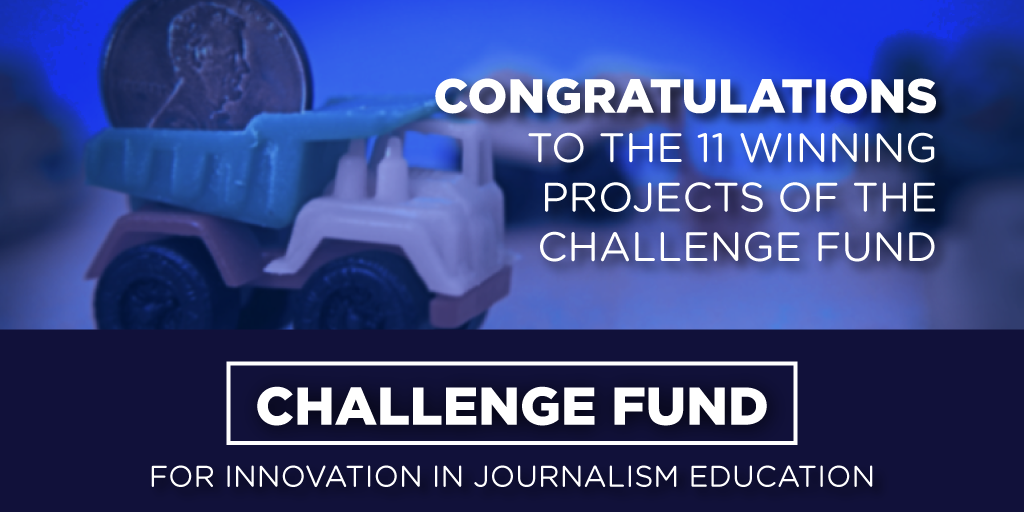
Challenge Fund: Ready for Round 2

Irving Washington is deputy director of the Online News Association. This post is cross-published from the association’s website.
The best experiments start with an intriguing question. When we launched the Challenge Fund for Innovation in Journalism Education last year, we hoped to spur a fresh, collaborative mindset around journalism education. Our experiment: Can we encourage more U.S. journalism schools to be thought leaders, innovators and change agents?
With our partners—the Excellence and Ethics in Journalism Foundation, the Robert R. McCormick Foundation, the John S. and James L. Knight Foundation, the Democracy Fund and the Rita Allen Foundation—we awarded $420,000 in grants to 12 schools that came up with original ideas on how to collaborate with local newsrooms on innovative projects.
It’s been an exciting journey to see these projects unfold. In the first year, our winners used new tools, relationships and processes to, just as a sampling, successfully cover the issues emerging from sea level rise; break investigative stories on the New York City Housing Authority and mold in tenements, and launch a student-run digital news portal in New Mexico. They’ve shared their learning along the way at venues across the country, including ONA14, the Donald W. Reynolds Journalism Institute, AEJMC, Journalism/Interactive and the International Symposium on Online Journalism.
Although these projects are ongoing, our early, independent evaluations already show local newsrooms strongly believe they’re providing valuable partnerships, news and information.
Now it’s time to build on this groundbreaking work with our second round of winning projects. The 11 selected projects from 13 schools, each of which will receive $35,000 to test their hypotheses, cover a wide range of ambitious experiments:
● Can virtual reality tell the stories of marginalized youth in the Georgia juvenile system?
● Can events journalism engage a local Hispanic community to follow government news affecting Latinos?
● Can a project tracking food truck lines show news organizations how to develop commercially valuable data?
● Can students create a digital network for fact-checking and investigating claims about the African-American community?
With this round, the Challenge Fund now supports 25 schools in their attempts to commit journalism differently. Just as important, simply applying to the fund has pushed educators to think through their innovative ideas to bring them to life; five of the schools that originally applied or were recognized as honorable mentions actually have pursued their projects, even in the absence of funds.
Where does our experiment go from here? We’ll continue to encourage journalism educators to lead innovation within their local communities as we watch and share the work of our Challenge Fund winners in this space.
Recent Content
-
Journalismarticle ·
-
Journalismarticle ·
-
Journalismarticle ·


